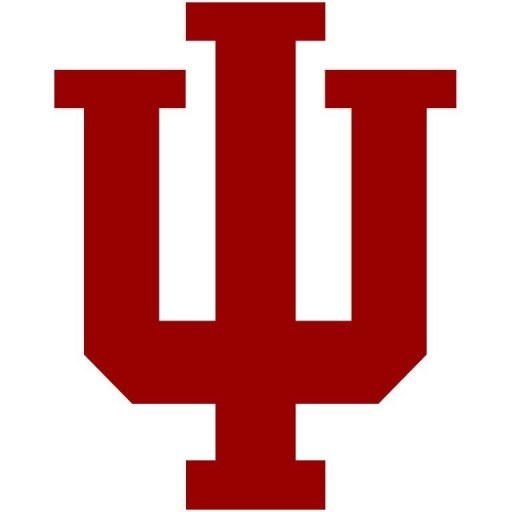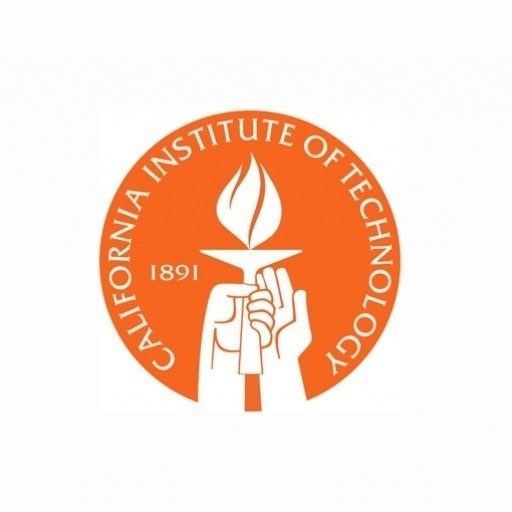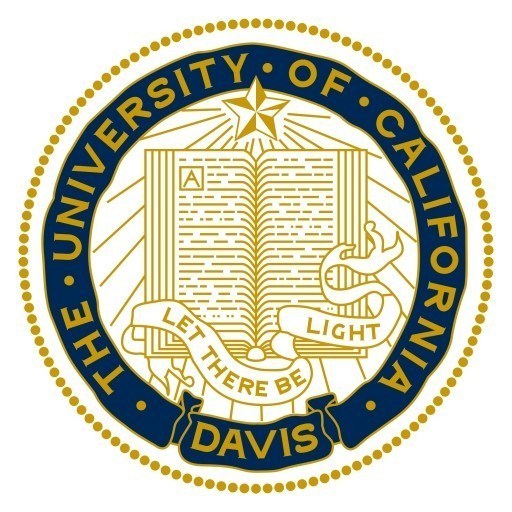Photos of university / #iubloomington
Inquiry Methodology at Indiana University Bloomington is a comprehensive program designed to develop students' research skills, critical thinking, and scholarly communication within various academic disciplines. This program emphasizes the importance of a systematic approach to investigation, enabling students to formulate research questions, design methodologies, gather and analyze data, and present their findings effectively. Through a combination of coursework, practical research experiences, and mentorship from experienced faculty, students learn to navigate complex inquiry processes, apply ethical research standards, and contribute original insights to their fields of study. The curriculum integrates theoretical foundations with hands-on research projects, fostering an environment of intellectual curiosity and rigorous inquiry. Students gain proficiency in diverse research methods, including qualitative and quantitative techniques, and are encouraged to explore interdisciplinary perspectives that enhance their analytical capabilities. The program prepares students for advanced scholarly work, professional research positions, or further academic pursuits, equipping them with the tools necessary to succeed in a data-driven world. By participating in Inquiry Methodology at Indiana University Bloomington, students join a community committed to academic excellence, ethical research, and innovative discovery, laying a solid foundation for lifelong inquiry and knowledge creation.
Major Requirements (39 cr. minimum)
Inquiry Requirements
All Inquiry students must take the following 3 courses:
- Y521 Methodological Approaches to Educational Inquiry (3 cr.)
- Y515 Foundations of Educational Inquiry (3 cr.)
- Y600 Methodological Implications of Social & Psychological Theories (3 cr.)
Inquiry methodology students can opt for a qualitative, a quantitative or an integrated track combining both qualitative and quantitative courses. For the qualitative and quantitative tracks the students must select a reasonable sequence of courses (30 hours minimum) from among the list below or their equivalent in other Indiana University–Bloomington schools or departments. At least 18 hours have to be selected from the track of emphasis, and at least two courses must be taken in the opposite track course listing (not to include courses listed as focusing on integrated methodologies – which may be taken as part of the 18 hours in the track of emphasis or as electives). For an integrated track, students must select at least 12 credit hours in the qualitative track and 12 credit hours in the quantitative track.
Qualitative Courses (30 cr. minimum)
- Y510 Action Research I (3 cr.)
- Y611 Qualitative Inquiry in Education (3 cr.)
- Y612 Critical Qualitative Inquiry I (3 cr.)
- Must be taken concurrently with Y500.
- Y613 Critical Qualitative Inquiry II (3 cr.)
- Must be taken concurrently with Y500.
- Y630 Narrative Theory and Inquiry (3 cr.)
- Y631 Discourse Theory and Analysis (3 cr.)
- Y671 Knowledge, Reflection & Critique in Methodological Theory (3 cr.)
- Y672 Communicative Action Theory (3 cr.)
Quantitative Courses (30 cr. minimum)
- Y502 Intermediate Inferential Statistics (3 cr.)
- Must be taken concurrently with Y500.
- Y527 Educational Assessment and Psychological Measurement (3 cr.)
- Y603 Statistical Design of Educational Research (3 cr.)
- Must be taken concurrently with Y500.
- Y604 Applied Multivariate Statistics (3 cr.)
- Must be taken concurrently with Y500.
- Y617 Psychometric Theory (3 cr.)
- Y627 Seminar in Educational and Psychological Measurement I (3 cr.)
- Y637 Categorical Data Analysis (3 cr.)
- Y639 Multilevel Modeling (3 cr.)
- Y645 Covariance Structure Analysis (3 cr.)
- Y655 Longitudinal Data Analysis (3 cr.)
Courses Common to Both Tracks
- Y500 Computer Lab for Educational Inquiry (1 cr.)
- Y650 Topics in Inquiry Methodology (3 cr.)
- Y660 Affinity Research Group (3 cr.)
- Y590 Independent Study or Research in Inquiry Methodology (1-3 cr.)
- Y690 Advanced Independent Study in Inquiry Methodology (1-3 cr.)
- Y750 Seminar in Inquiry Methodology (3 cr.)
Courses Focusing on Integrated Methodologies
- Y525 Survey Research Methodology (3 cr.)
- Y535 Evaluation Models & Techniques (3 cr.)
- Y635 Methodology of Educational Evaluation (3 cr.)
Minor Requirements (12-18 cr.)
The minor must have integrity in its own right and must complement the major. The minor field must demonstrate wholeness within itself and contribute to the student's overall doctoral program. Minors are normally formulated within a single program area. However, an interdisciplinary or individualized minor is also possible. Interdisciplinary or individualized minors require a written description of the minor's underlying theme along with a rationale for each course's contribution to that theme through the Minor Justification form. This form should be submitted and approved by the Graduate Studies Office prior to enrolling in the minor courses.
Students will select a minor field of study to complement their study of inquiry methodology. Because inquiry methodology interfaces with substantive areas of study it is important for students in inquiry methodology to develop understandings in at least one such area so that they grasp the complexity of methodology in use. The minor serves to develop students substantive area of interest. Major area courses (those within the Inquiry Methodology program) may not be used in the minor.
Elective Requirements (6 cr. minimum)
Educational research is multidisciplinary in nature, and students have a broad range of research interests and career plans which requires flexibility for their programs of studies. The program, therefore, enables students to tailor their electives in consultation with their Advisory Committees.
Electives may be taken in fields inside or outside the School of Education. Students may take electives in any area of interest to complement their program of study.
Dissertation Requirements (15 cr.)
- G795 Dissertation Proposal Preparation (3 cr.)
- G799 Doctoral Thesis in Counseling Psychology (12 cr.)
Requirements
- A completed online application (required of all applicants). The online application is campus-specific and non-transferable. Applicants are responsible for submitting an application to the campus where they wish to pursue a degree, certificate, or licensure program.
- An application fee (required of all applicants). Online applications require a nonrefundable payment by credit card and cannot be processed before the fee is paid in full.
- A personal goal statement (required of all applicants) addressing academic and professional background and objectives.
- A current resume or curriculum vitae (required of all international applicants; also required of domestic applicants to some programs).
- Official transcripts (required of all applicants). International applicants must provide official transcripts and degree certificates from every institution of higher education attended. Domestic applicants to degree programs must submit official transcripts from every institution of higher education where they attempted nine or more semester hours, whether or not a degree was granted. Domestic applicants to non-degree (certificate or licensure) programs must submit official transcripts from every institution of higher education where they have earned (or expect to earn) a degree
- Letters of recommendation (required of all applicants) that address the applicant’s academic and/or professional capabilities. The number of letters required (one, two, or three) may vary depending on the program.
- An academic writing sample (required for a few select programs).
- Official GRE Scores (required of all international applicants and most domestic applicants). Some master’s programs and licensure programs may waive the GRE requirement for U.S. citizens whose cumulative undergraduate GPA meets a pre-defined minimum. Applicants who are required to submit GRE scores must submit official scores from a test taken within five years prior to application.
- Official TOEFL Scores (required of all international applicants whose native language is not English). International applicants who are current degree-seeking students at a U.S. institution of higher education may be exempted from the TOEFL requirement. U.S. citizens who have been educated primarily outside the U.S. in a language other than English may be required to submit TOEFL scores. Applicants who are required to submit TOEFL scores must submit official scores from a test taken within two years prior to application.
- Praxis or Indiana CORE Assessment Scores (required for teacher preparation programs, including the Secondary Transition to Teaching program and other initial licensure programs).
Scholarships
- Associate Instructorships
- Graduate Assistantships
- Research Assistantships
Inquiry Methodology at Indiana University Bloomington primarily utilizes a combination of coursework, research projects, seminars, and independent study to provide students with comprehensive training in inquiry-based learning. The program emphasizes active engagement with research methods, data collection, analysis, and interpretation, equipping students with the skills necessary to conduct rigorous investigations in their respective fields. Students are encouraged to participate in workshops led by faculty experts, which focus on qualitative and quantitative research techniques, ethical considerations in inquiry, and contemporary issues related to data gathering and analysis. Additionally, the program offers opportunities for internships and collaborative projects with external organizations, fostering practical learning experiences.
The curriculum is designed to develop critical thinking and methodological precision, ensuring students understand the theoretical foundations and practical applications of inquiry. Regular seminars and colloquia provide platforms for students to discuss ongoing research, refine their research questions, and receive constructive feedback from peers and faculty members. The program also incorporates the use of advanced statistical software and research tools, facilitating proficiency in data management and analysis.
Faculty members actively supervise student research, guiding thesis work and supporting the development of publication-quality projects. As part of their training, students learn to craft research proposals, navigate institutional review board procedures, and communicate findings effectively to diverse audiences. The interdisciplinary nature of the Inquiry Methodology program encourages students to explore various methodologies across fields such as social sciences, humanities, and natural sciences, preparing them for careers in academia, policy analysis, research consulting, or related professions.
Considering similar inquiry-focused programs at Indiana University Bloomington, the approach emphasizes experiential learning, ethical inquiry, and methodological versatility. The program aims to foster a rigorous scholarly attitude, ensuring graduates are well-equipped to contribute meaningful insights and evidence-based solutions in their professional spheres. Overall, Indiana University Bloomington’s Inquiry Methodology program offers a comprehensive, practice-oriented education designed to cultivate expert inquiry skills, critical analysis, and research literacy among its students.


